Nigeria’s Fireboy DML Talks His New Album ‘Apollo’
Diving into the importance of evolution, personal style as an artist, and the meaning behind describing his music as Afro-Life.

After Nigerian singer-songwriter Fireboy DML’s debut 2019 album Laughter, Tears & Goosebumps, his eye-catching name started showing up on the top of Afrobeat charts around the world. There were singles like “Jealous”, “Scatter”, and “King” that saw music lovers and critics alike fully embracing the poetical prowess and vocal versatility that makes up Fireboy DML’s discography.
The 24 year-old’s newest addition to that discography is Apollo, which dropped on Friday Nigerian time and marks Fireboy’s second full length album. Within Apollo’s 17 tracks, Fireboy digs deep into personal and artistic evolution, all the while staying true to his Afro-Life sound—what he coins his fusing of Afrobeats with contemporary pop and R&B.
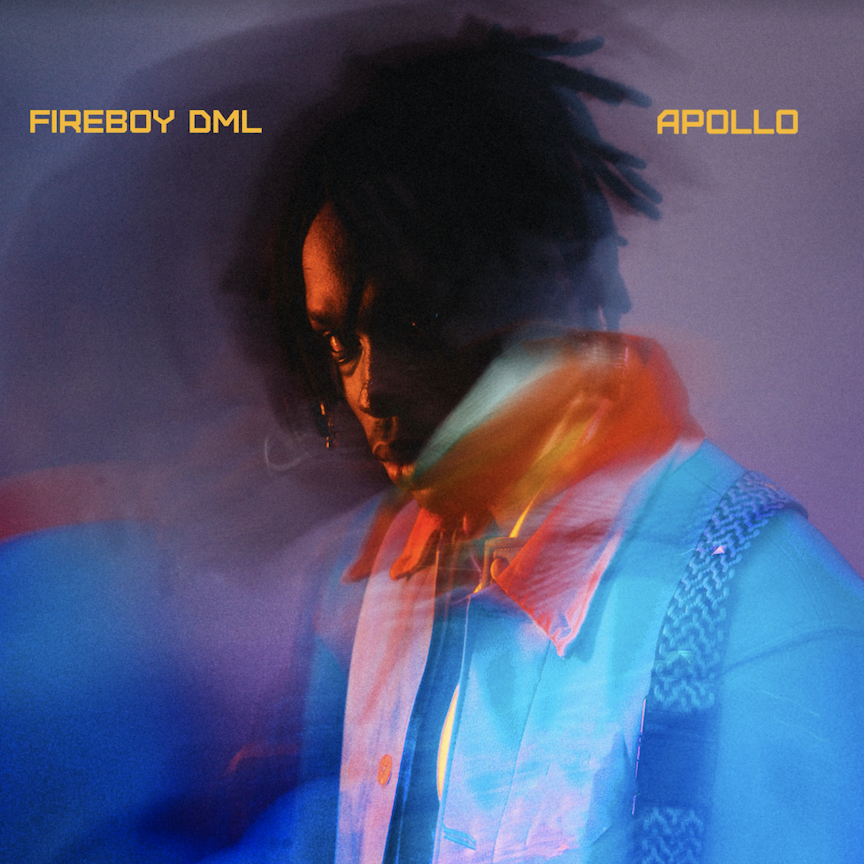
As Fireboy talked with VMAN last week, Apollo made up a large part of the conversation, but the singer-songwriter ultimately proved to have multiple dimensions. From fully explaining why Afro-Life best identifies his work, to discussing the desire to stand out against the mainstream, enter the confidently cool world of Fireboy DML below.
VMAN Can you tell me more about why you consider your music and sound as Afro-Life? In what ways do you find importance in that title?
Fireboy DML For me, Afro-Life isn’t a genre. I didn’t just wake up one morning and say, Oh, I’ve created a genre for myself. That’s too egotistical. I’m an Afrobeat/Afropop artist, but my own take on Afrobeats and Afropop is different. It’s more lyric-wise, there’s more effort on lyricism. There’s more effort on soul. Afrobeats is basically about vibes and the beats and the energy from the instrumentation and all that. Afro-Life means Afrobeats that has a more unique sound. So that’s why I call what I do Afro-Life, because I feel like my music deserves to have an identity of its own. It’s not about saying that this is my genre, I’m just defining my music.
VMAN Being from Nigeria and seeing your music get to the top of charts all over the world, what are your thoughts on having your stories reach listeners in places like the US?
F It means a lot to me. It means that my dreams are coming to fruition and my goal is slowly coming to pass. I’ll be grateful if it all comes to fruition before I even planned to get there, because it has always been my dream to take Afrobeats worldwide and to make people realize that Afrobeats is a genre on its own. It’s been on for years, and it took some time for people to really recognize how powerful this genre of music is. Especially with this particular generation of mine, we are truly taking Afrobeats global and I’m seeing all these songs on the charts as just a manifestation of that. I’m immensely grateful to everyone that’s taken part in this greatness, it’s beautiful to see.
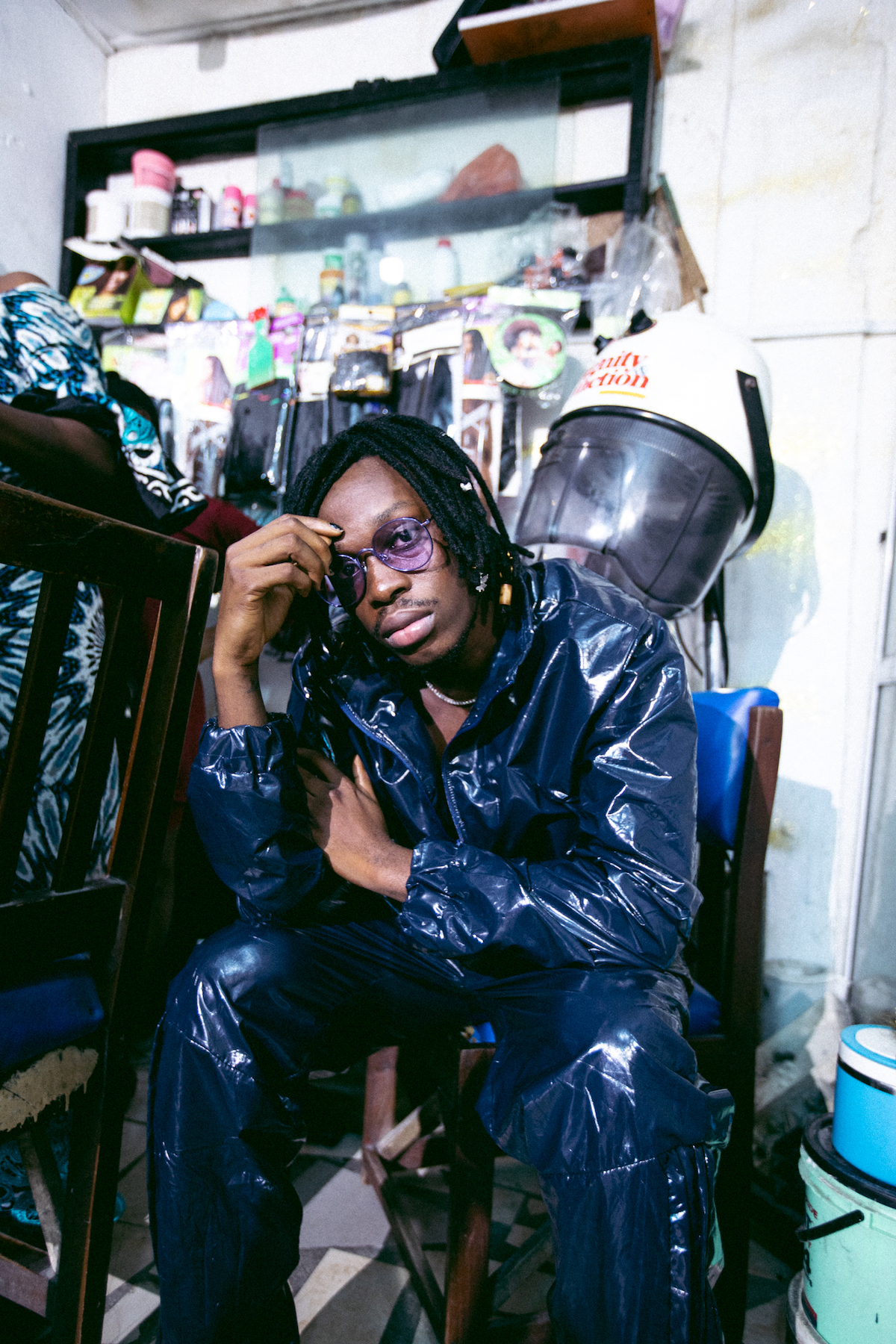
VMAN How do you think your degree in English and love of poetry play into your lyrics throughout your discography?
F I’ve always been this same person since I was a kid, you know, just lock myself up in my room and write short, dark poems and stuff like that. It’s always been a part of me. When I studied English in school, at that time I didn’t know that I was going to be a musician, I was just doing it because that’s what I wanted to do. I thought I was gonna end up as a scholar or as a lecturer in some school. But during my second year in school, I found music and then that was it.
Unconsciously, the poetry just became part of my music. It helped me know how to put words together because people will think, Oh, you must have a girlfriend and that was what helped you write this kind of beautiful song! But no, I don’t, I just noticed how to put good words together, how to describe feelings, and how to make people feel something with words. My degree has actually played a big part in making that happen. I think it helped me better string words together, express myself more, and describe emotions perfectly.
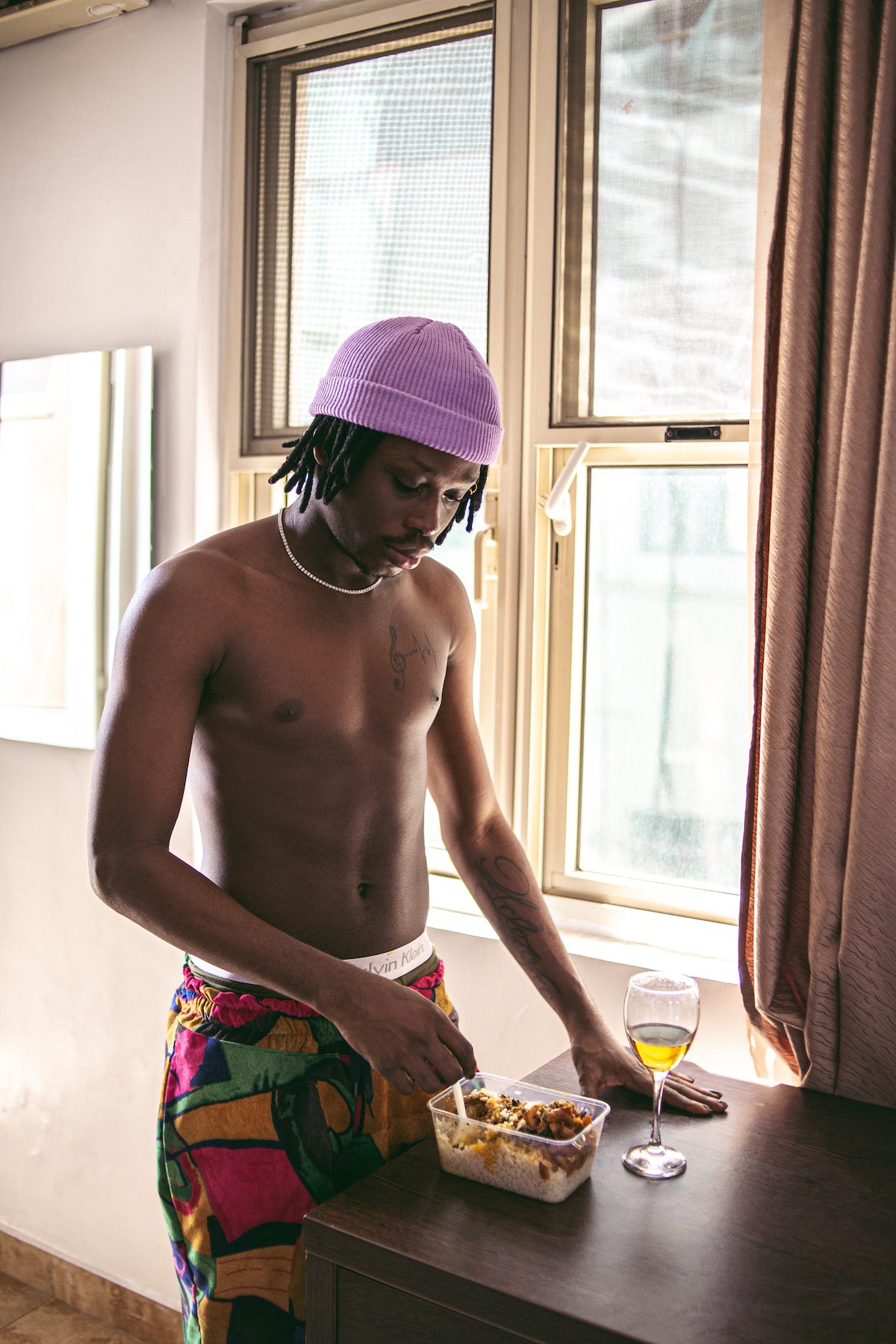
VMAN You’ve said before you love standing out and being different and achieving that through fashion; does that concept influence your music as well?
F With the desire to be different, I think that’s where it all stems from. ‘Cause when I’m making music, I always try as much as possible to make sure that it comes out different or that people will see it differently when it comes up. Even when I’m writing about the most mundane things, I always try to make sure that there’s an element of difference in it, so when it comes out and it’s compared to other people’s songs, it’ll be like, Oh, this definitely stands out.
That desire is always there and it’s the same thing with my fashion–I like to stand out. I’m an artist and when I step in a place, I want to be known as an artist. Not necessarily noticed, I don’t really like being noticed, but when you see me you know I’m an artist. I love when my fashion makes that statement, and I love when my music makes that statement. So I don’t really like to talk too much. I like my music and my fashion to do the talking, they both mean a lot to me, and I put the same energy into both.
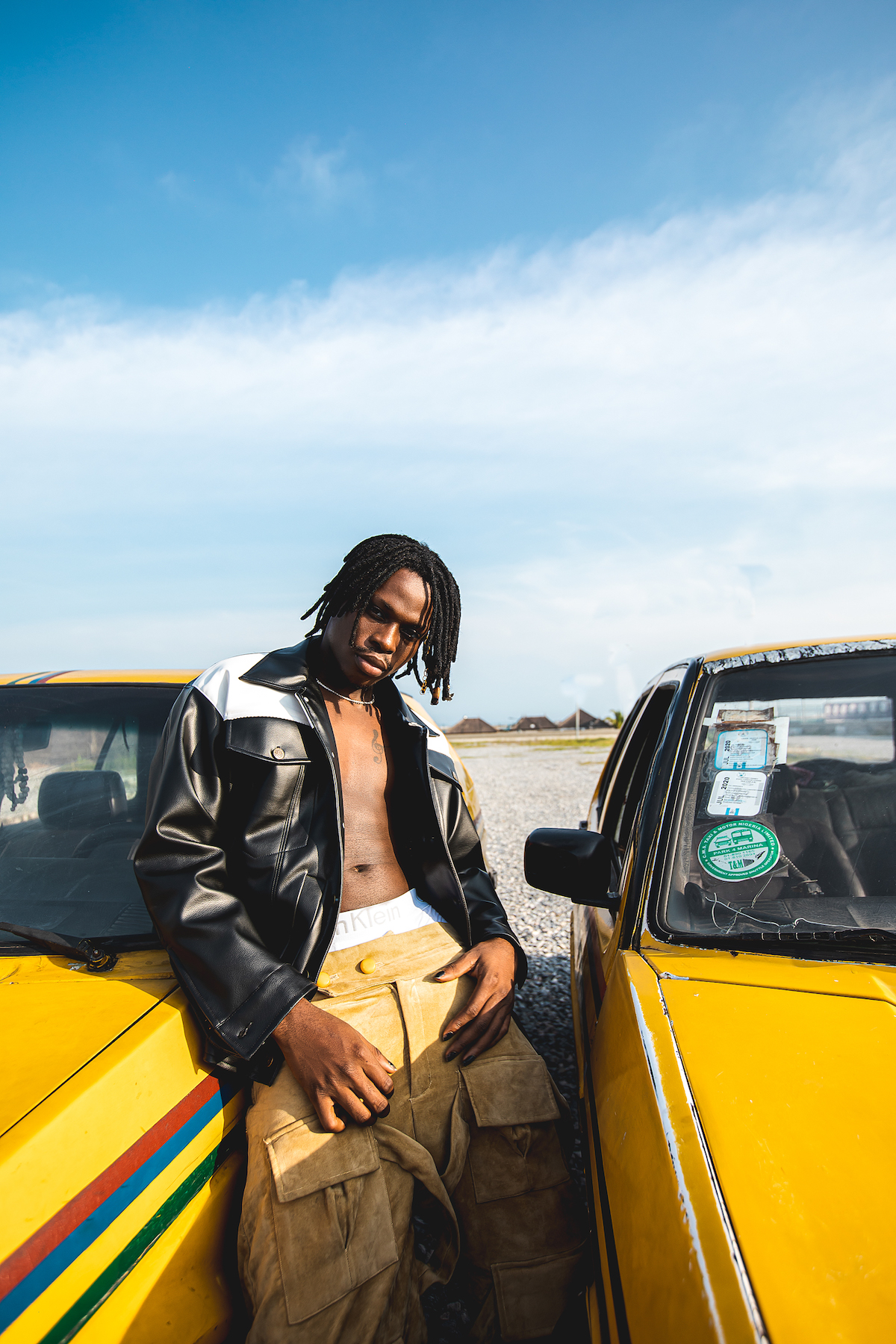
VMAN What can we expect from your forthcoming album Apollo? What’re you most looking forward to with its release?
F My debut album was just nine months ago and it’s ballsy for a Nigerian artist to drop his sophomore album so soon, especially during this period where a lot of projects are dropping and stuff. But me, I just want to make music. I just want people to realize, You know what? This artist has evolved, this man has evolved as an artist, as a human being. I also just ultimately want people to realize that Afrobeats has a lot of dimensions and that the sound is diverse, the sound is wild, the sound is beautiful.
But I think what’s most important for me, with my new album, is the fact that I’ve evolved as a human being and as an artist. I want that to be the most obvious thing from that album. I want people to find it very difficult to compare to my last project, I don’t want that comparison. So I think I pretty much achieve that and I hope people realize that: this guy’s done it, we have a true artist on our hands. That’s what I want people to feel from listening to Apollo.
VMAN Do you think that in the future with the more albums that you release, you want that evolution between each album?
F With each album, I will definitely evolve because the sound space changes every time. If you get caught up in the same sound, you might get lost forever if you don’t roll with the times. That’s something I’ve learned how to do, especially with this album. I think I really learned how to express myself more and I’m willing to experiment more with sounds. My subsequent albums too will be all about evolution because it’s so important, and individual changes are the only constant thing. So with each album, I want to show different sides of myself. And of course, with Apollo, I think I kind of expressed myself more, I showed more about myself. I think my first album was more about my sound, but this one is more about the kind of person I am.
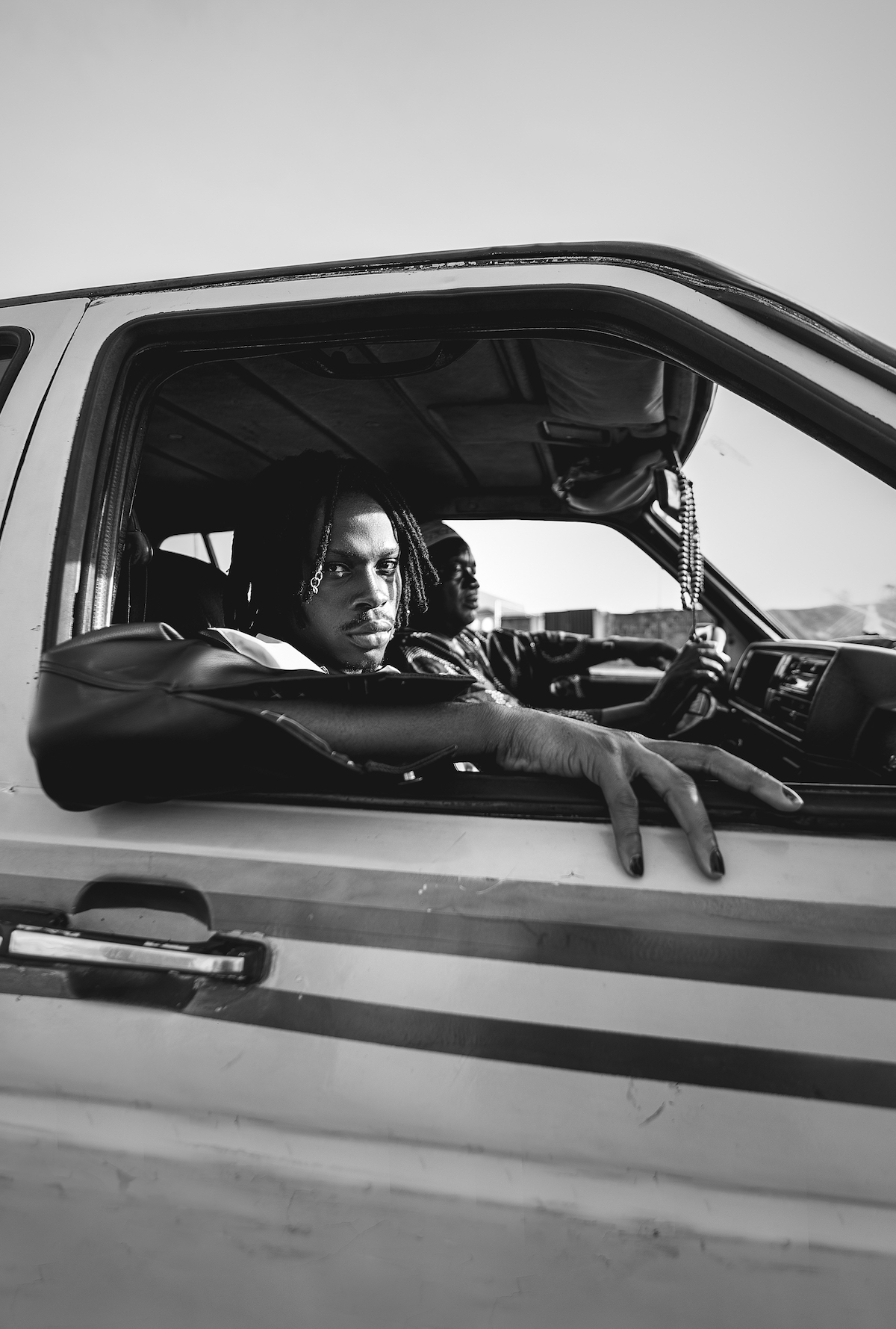
Discover More
